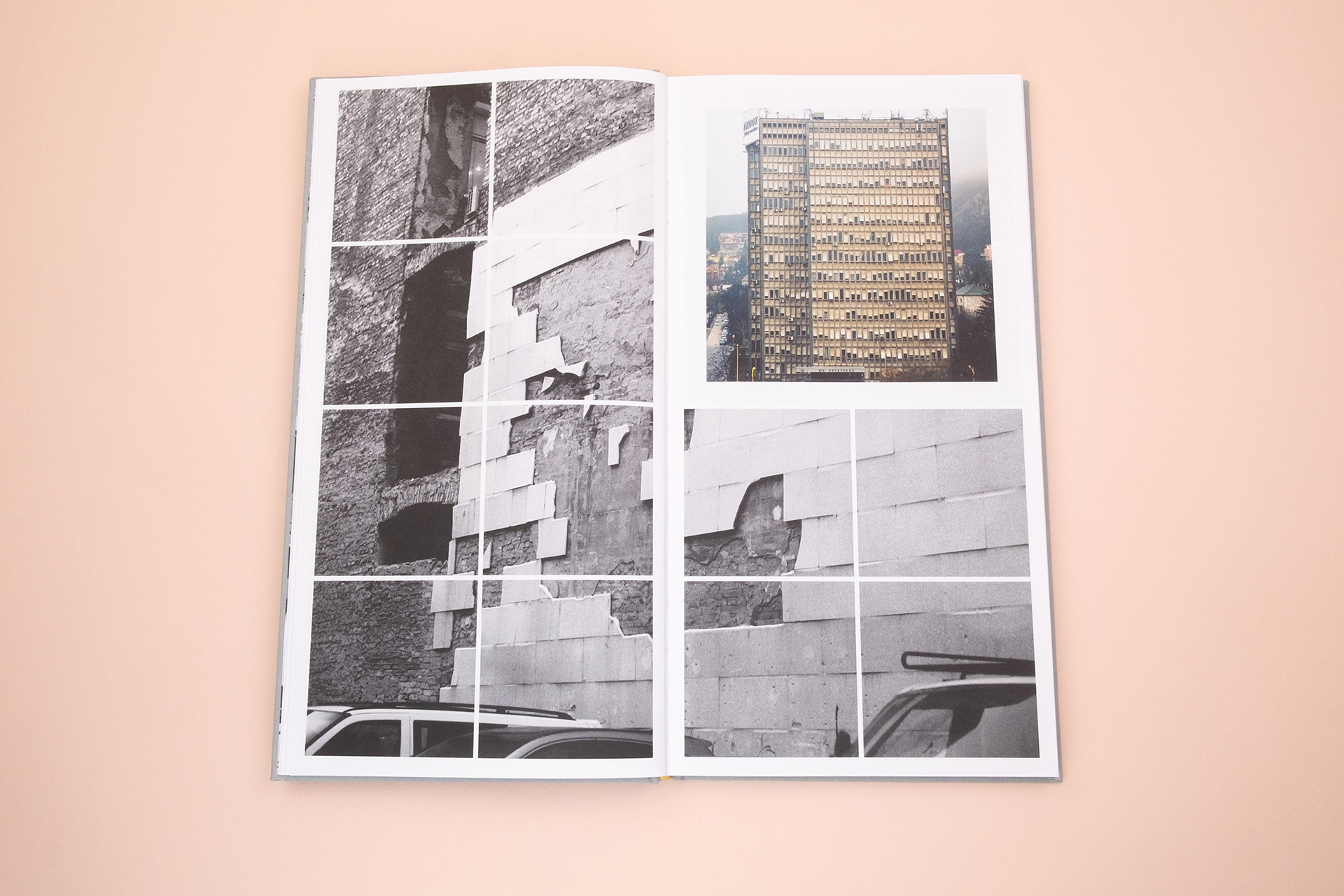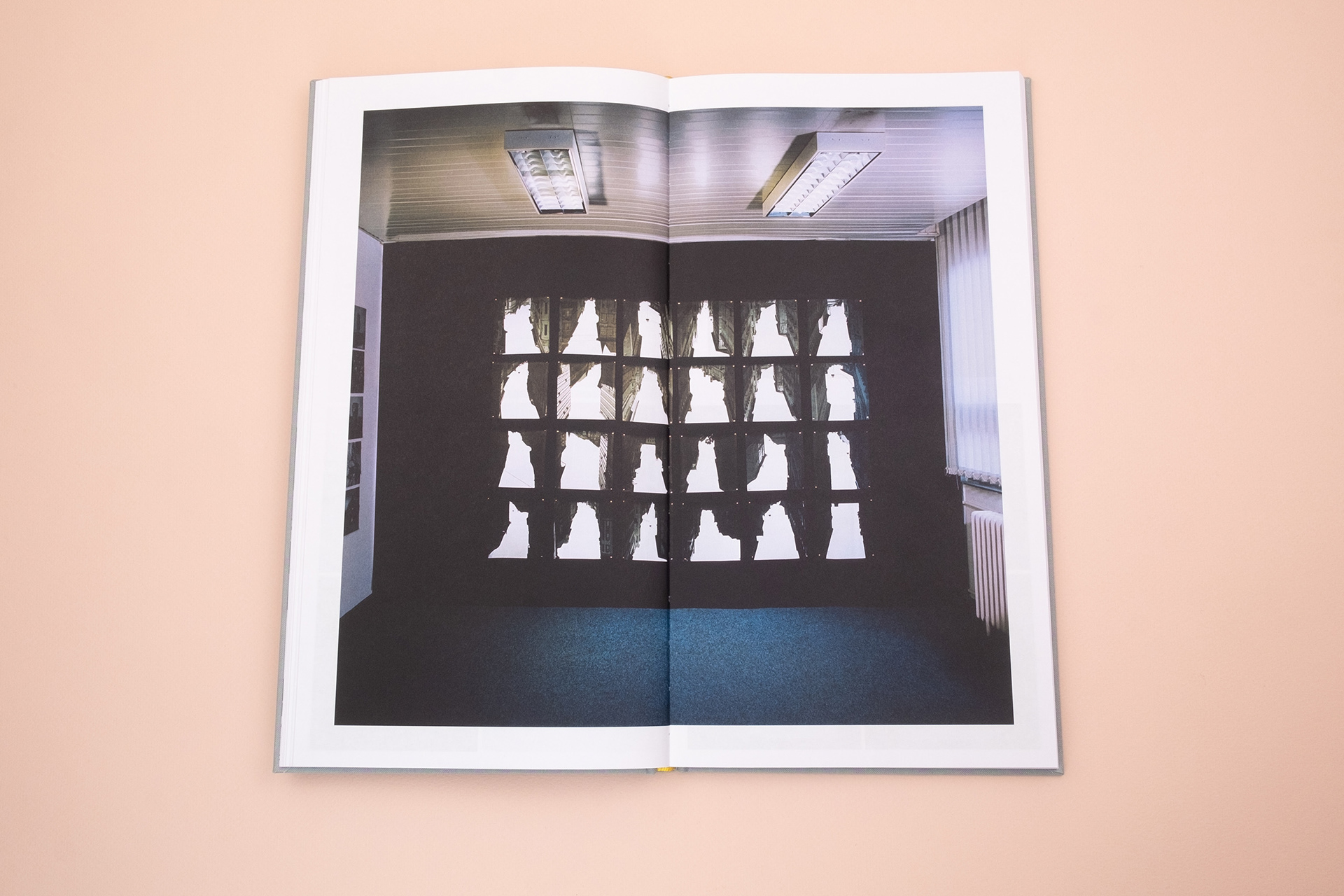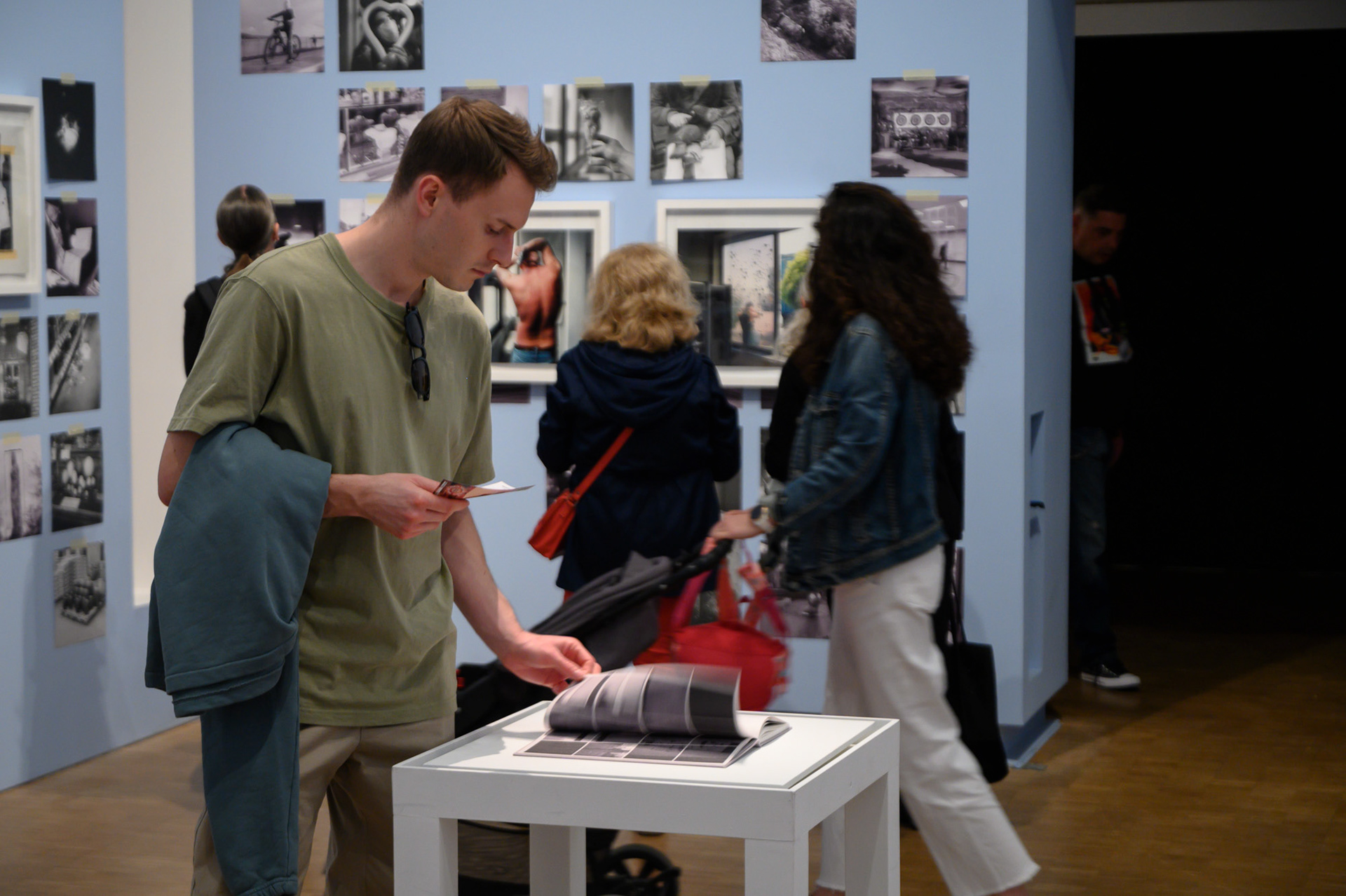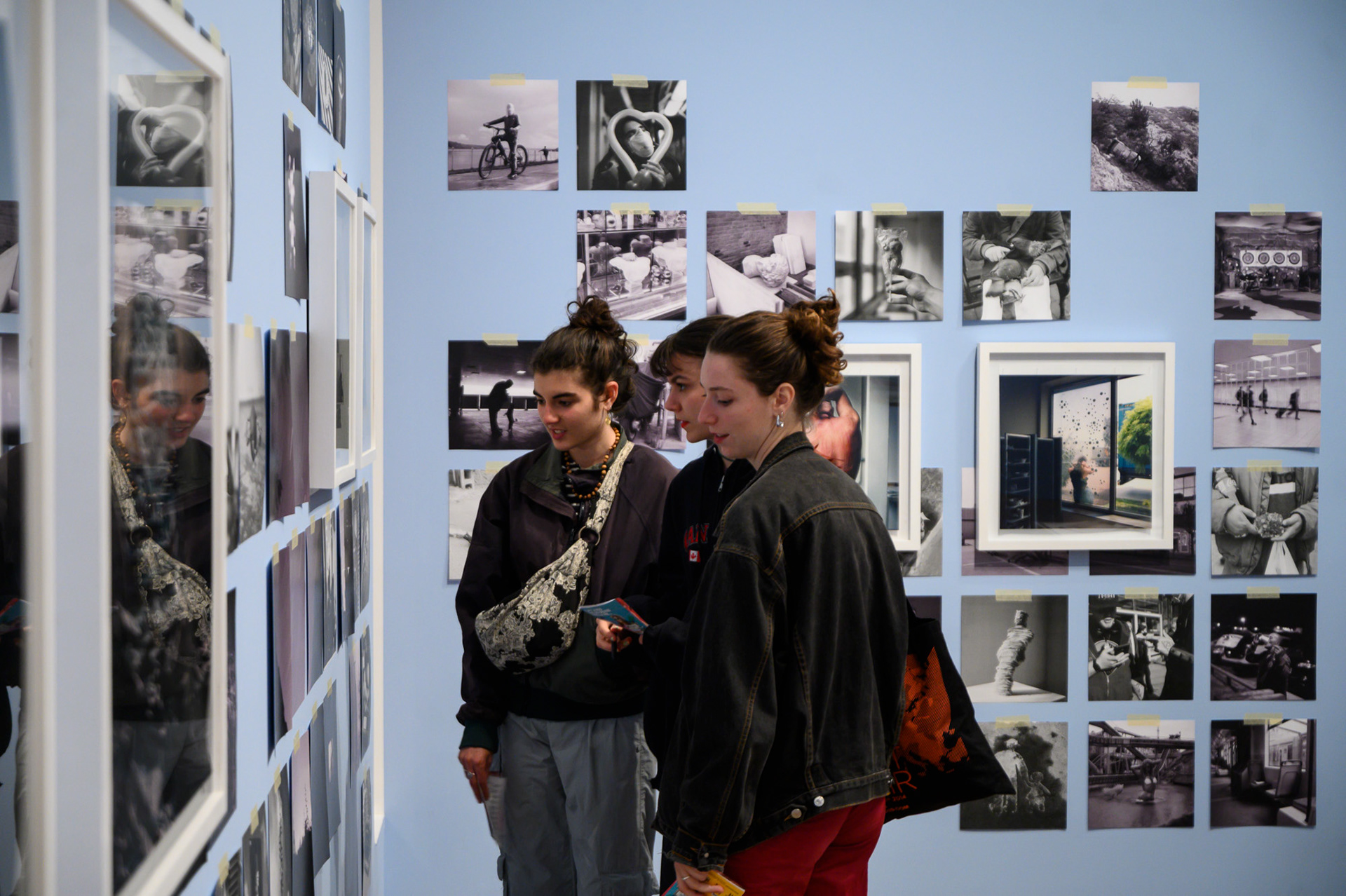Anima Mundi, meaning ‘world spirit’, is rooted in Platonic thought and reflects the ancient concept of a universal organising principle that connects all beings. However, it’s not the existence of such a force, but humanity’s intrinsic need to believe in it that sparked the interest of Máté Bartha.
Bartha explores the hidden anatomy of an archetypal metropolis, portraying urban space as a social product. A ‘second nature’ shaped by human hands, yet one that has evolved into an autonomous organism no longer governed by its creators. This challenges anthropocentric views and encourages a shift towards understanding the city through a post-human grammar.
Bartha takes on the role of a fictional observer, wandering through the metropolis like a detective in search of patterns, hidden connections, and the elusive ‘order of things’. Photographs of both real and staged scenes from various global locations are collaged into an unidentifiable, virtual cityscape. Grid structures, posters, and other urban elements recur as motifs, but offer no clear orientation, reflecting the ambiguity and complexity of modern life. Presented in a modular grid, they serve as metaphors for humanity’s attempt to find structure and meaning in an often arbitrary world.
Designed as an obscure encyclopedia, Anima Mundi draws inspiration from enigmatic works such as the Voynich Manuscript, Robert Fludd’s mystical diagrams, and Luigi Serafini’s Codex Seraphinianus – each of which attempts to capture a world in its entirety through complex and often cryptic visual codes. Divided into chapters that examine urban phenomena from the microcosmic to the cosmic, it invites the reader to act as an interpreter, searching for a hidden logic behind the scenes.
The project has been awarded:
Shortlisted for Lens Culture "New Visions" Award - 2025
Les Boutographies, Montpellier - Jury Prize, 2024
PHMuseum Grant - Main Prize Honourable Mention, 2024
Shortlisted for Lens Culture "New Visions" Award - 2025
Les Boutographies, Montpellier - Jury Prize, 2024
PHMuseum Grant - Main Prize Honourable Mention, 2024
Exhibition views from:
Fotofestiwal Łódz, Main Section, 2025
Pavillon Populaire Montpellier, Les Boutographies, 2024
Balabanov's House - Plovdiv - International Meetings of Photography, 2023
TOBE Gallery, Budapest, 2022
Fotofestiwal Łódz, Main Section, 2025
Pavillon Populaire Montpellier, Les Boutographies, 2024
Balabanov's House - Plovdiv - International Meetings of Photography, 2023
TOBE Gallery, Budapest, 2022







